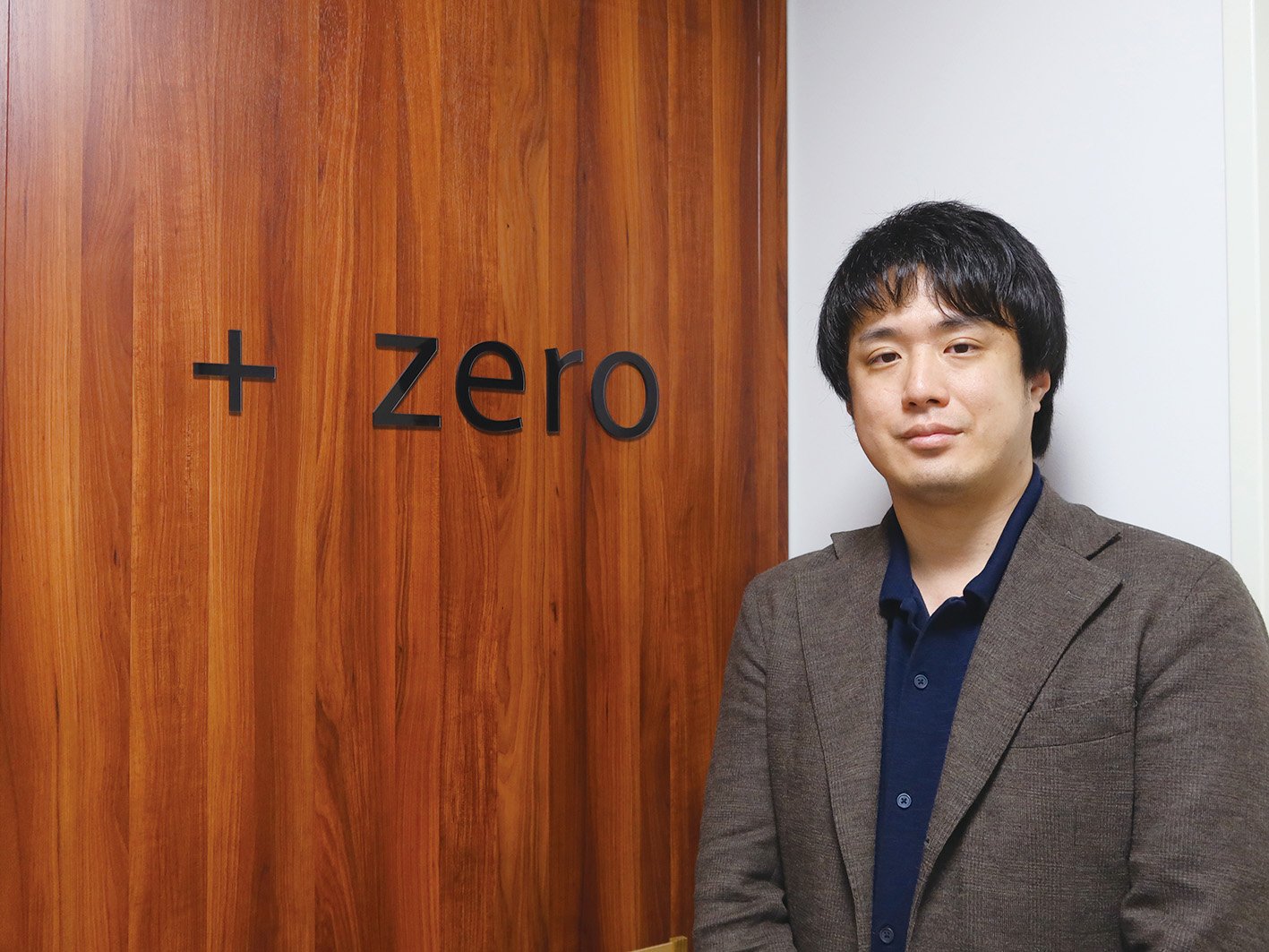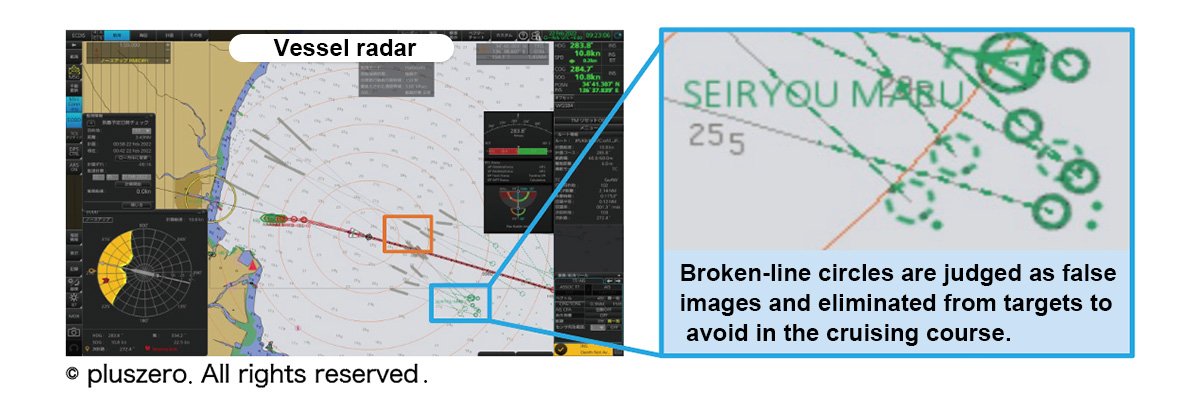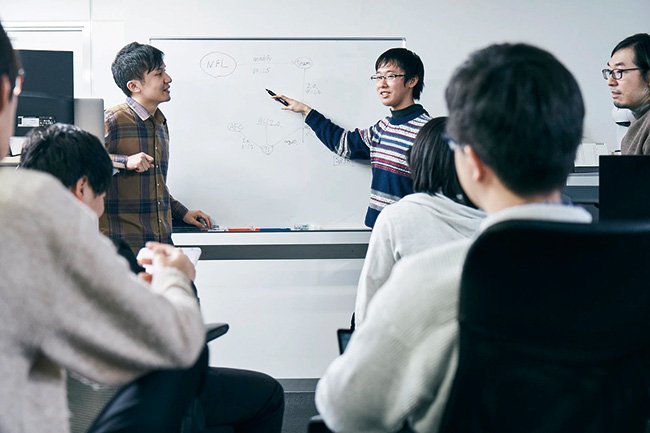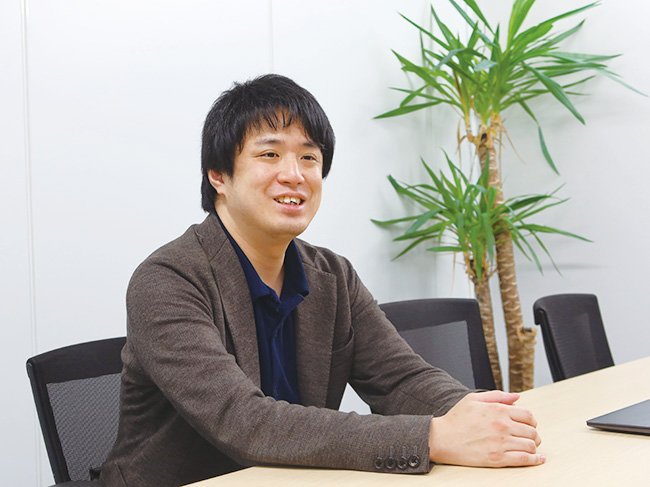Bringing Cutting-Edge Technology to Society through
Integrated Mathematical Knowledge

Ryota Mori
Representative Director, President/COO
pluszero, Inc.
https://plus-zero.co.jp/en
| October 2022 |
Mori’s pluszero was listed on the Growth Market of the Tokyo Stock Exchange |
| July 2018 |
Mori founded pluszero, Inc., which was listed on the EY Innovative Startup 2020. He obtained a patent for “Virtual temporary staff” with a new technology. |
| March 2016 | Mori completed the doctoral course at Prof. Kiyoshi Asai’s Laboratory, Department of Computational Biology and Medical Sciences, GSFS, and began working in a venture company. |
| March 2011 | Mori graduated from the Department of Bioinformatics and Systems Biology, Faculty of Science, University of Tokyo. |
As a solution to the serious labor shortage, development of fourth-generation AI with flexible comprehension ability is expected to promote innovative work styles. Ryota Mori runs pluszero, Inc., with a vision to evolve AI from a simple tool to a human partner.
As an elementary schoolchild, Mori loved mathematics. He spent a lot of time at the library and was absorbed in the world of mathematics. He was also interested in things that few people around him paid attention to, such as canoes and shakuhachi (the Japanese vertical bamboo flute). Before choosing a university course, he encountered bioinformatics, which was a promising field at the time, and decided on his future path.
He studied at Prof. Asai’s laboratory at the GSFS, where a free atmosphere and students’ independence were respected. While there, he considered communication beyond academic disciplines the most important. He learned from collaboration with researchers in other fields at the Computational Biology Research Center, the National Institute of Advanced Industrial Science and Technology, and research approaches at the MIT Media Lab. Through these experiences, he gained confidence in the potential to integrate different fields to develop new ideas. Thus, he trusted the GSFS policy.
“It is said that mathematical research outcomes take 5–10 years to become useful in society. However, I wanted to practicalize cutting-edge research knowledge in society in a shorter time and utilize its potential immediately. That is why I started the business,” says Mori.
Mori’s pluszero is developing a natural language processing technology to realize next-generation AI. This technology strengthens statistical approaches, which is the fundamental weakness of generative AI. “This technology can be applied to cases difficult for conventional AI,” points out Mori.
While working to commercialize next-generation AI with pluszero, he also ambitiously develops custom-made AI. His projects number about 150 a year, and he shares ideas in teams, for example, an unmanned operation system of large vessels and an AI-equipped foreign currency exchange machine that is the smallest in the industry.


Mori and his colleagues are trying to create the future, hoping that their new AI technology will be widely used and that its value will be accepted in the society. They aim to develop AI to be useful as an “evolved” tool that amplifies manpower, like the abacus being replaced with a calculator and then Excel. He believes that this technology will strongly support humans when they encounter problems and determine directions to solve them.

Message to Current GSFS Students

Connect with People and Expand Your Possibilities
Communicate openly with many people and pay attention to things that you do not know. The time to be alone in your life is limited. Communications that cross your regular interests will efficiently expand new possibilities. Our company welcomes those who have completed a doctoral course and have unique perspectives.
vol.45
- Cover
- On the Forefront of Cancer Genomics
- Visualizing the Universe: Exploration of Plasma in the Planetary Atmosphere and Space
- Finding Biological Information in Genetic Sequences
- Future of a Sustainable Low-Carbon City by a Transdisciplinary Approach
- GSFS Front Runners: Interview with an Entrepreneur
- Voices from International Students
- On Campus/Off Campus
- Events & Topics 1
- Events & Topics 2
- Information
- Relay Essay
